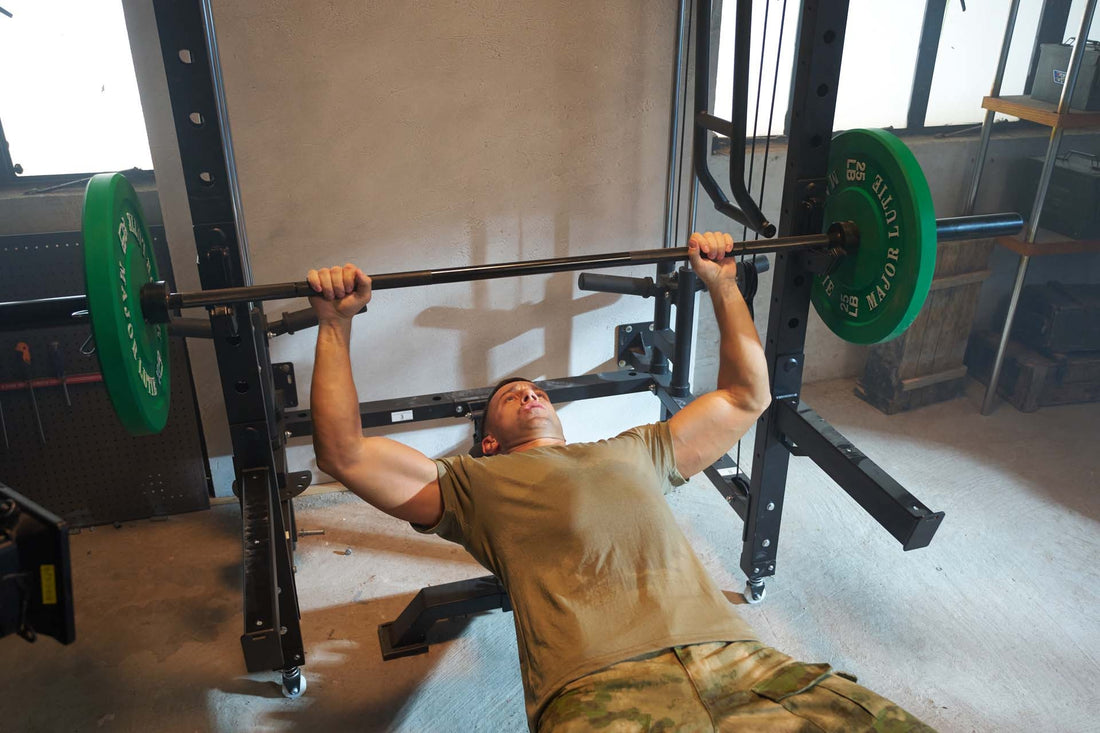
If you've ever found yourself asking, "Why does my shoulder hurt when I bench press?" you're not alone. Shoulder pain during or after bench pressing is a common issue that can impede your fitness progress and even lead to more severe injuries if not addressed properly. In this article, we will explore the various causes of shoulder pain during bench pressing, along with potential solutions and preventive measures to help you lift without discomfort.
Understanding the Anatomy of the Shoulder
Before diving into the causes, it’s essential to understand the shoulder's complex structure. The shoulder joint is a ball-and-socket joint comprising the humerus (upper arm bone), scapula (shoulder blade), and clavicle (collarbone). The rotator cuff, a group of muscles and tendons, stabilizes the shoulder joint and enables various movements. Given its range of motion and involvement in exercises like the bench press, it's no wonder the shoulder is prone to injuries.
Common Causes of Shoulder Pain During Bench Pressing
Poor Form
Arguably the most common cause, poor form during the bench press can place undue stress on the shoulders. Incorrect hand placement, flaring elbows, and uneven lifting can all contribute to shoulder pain.
Muscle Imbalances
An imbalance between the muscles in your chest and those in your back or rotator cuff can lead to shoulder pain. Weak or underdeveloped stabilizing muscles can cause improper mechanics during lifts, increasing the risk of injury.
Overtraining
A rigorous training schedule without adequate rest can lead to overuse injuries, including tendinitis and shoulder impingement. Both conditions can cause significant discomfort during bench pressing.
Previous Injuries
If you've had previous shoulder injuries, they could be the root cause of your pain. Residual effects from past injuries can alter your mechanics and increase the likelihood of recurring pain.

Potential Solutions to Alleviate Shoulder Pain
Improving Your Form
Correcting your form is crucial for preventing shoulder pain. Here are some tips:
- Ensure your hands are placed slightly wider than shoulder-width apart.
- Keep your elbows at a 45-degree angle rather than flaring them out.
- Maintain a slight arch in your lower back and keep your feet flat on the ground.
- Engage your core and squeeze your shoulder blades together.
Strengthening Stabilizing Muscles
Incorporate exercises that target the rotator cuff and back muscles to create balance and stability. Some recommended exercises include:
- Bands and Dumbbell External Rotations
- Face Pulls
- Scapular Push-Ups
- Rows and Rear Delt Flys
Incorporating Rest Days
Ensure you give your muscles adequate time to recover. Incorporating rest days into your routine can prevent overuse injuries and allow your muscles to repair and grow stronger.
Seeking Professional Help
If shoulder pain persists, it may be beneficial to consult a healthcare professional or physical therapist. They can provide a tailored rehabilitation program to address any underlying issues.
If you want to achieve better results when bench pressing, you can try the adjustable bench press and Olympic barbell from Major Fitness. The adjustable bench press provides multi-angle training to adapt to different chest muscle training needs, and the Olympic barbell ensures stability and safety. It is an ideal combination for improving bench press strength and chest muscle development.
Preventive Measures for Long-Term Shoulder Health
Prevention is always better than cure. Implementing preventive measures can help you maintain shoulder health and avoid future pain:
- Warm Up: Always begin your workout with a proper warm-up to increase blood flow to the muscles and prepare them for lifting.
- Mobility Exercises: Regularly perform mobility exercises to maintain and improve the range of motion in your shoulders.
- Balanced Training: Ensure your workout routine includes exercises for both pushing and pulling movements to maintain muscle balance.
- Listen to Your Body: Pay attention to any signs of discomfort or pain and adjust your routine accordingly.
Are you tired of shoulder pain disrupting your bench press routine? By understanding the causes, addressing potential issues, and incorporating preventive measures, you can achieve pain-free lifting. Don't let shoulder pain hold you back from reaching your fitness goals. Implement these strategies, prioritize your shoulder health, and get ready to see improvement in your bench press performance.



















